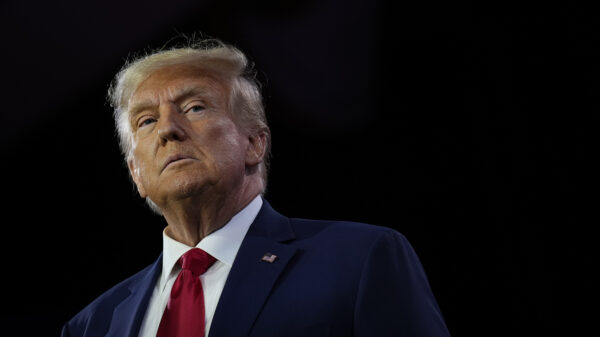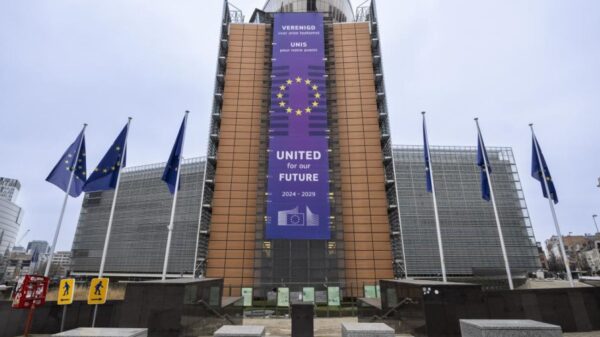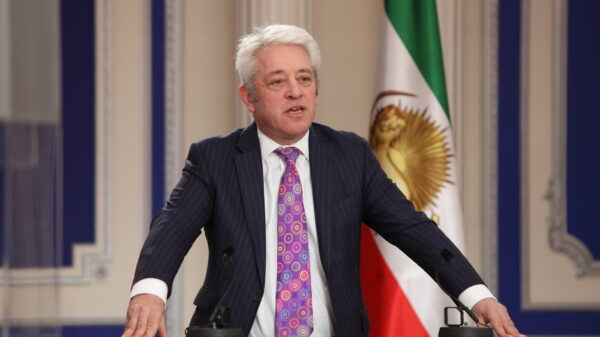A proposed law compelling the UK to meet new legally binding targets on climate change and protecting nature has failed to clear its first hurdle in the House of Commons.
The government won a motion, by 120 votes to seven, to end debate of the bill, meaning it will not return to the House of Commons until July and is unlikely to become law.
The Climate and Nature Bill had been proposed by Liberal Democrat MP Roz Savage, however she said she would not push for a vote on the bill itself, having agreed to work with ministers to find a way forward.
Green Party leader Carla Denyer said she was “disappointed” by the agreement and urged the government to “give us real commitments”.
Denyer told MPs Savage had agreed not to push for a vote “it seems, for just a meeting with the secretary of state for energy and net zero… with an agreement to work together but with no specific commitments”.
In reply Savage said she had been an environment campaigner for 20 years and had “tried placard waving” but now wanted to “take a policy approach”.
“As the third party, the only way we can do that is by working with the government.”
Ahead of the debate a group of environmental campaigners – including TV chef Hugh Fearnley-Whittingstall – gathered outside Parliament.
Fearnley-Whittingstall told the BBC he had heard “really worrying noises the government is rowing back” on support for the bill and that some Labour MPs had been pressured to reject the proposal.
A Downing Street spokesperson said: “The UK already has a well-developed legislative framework with legally binding targets, including the Climate Change Act 2008 and the Carbon Budgets.”
During the debate, environment minister Mary Creagh said the government took its targets “very, very seriously”.
The bill would have required the environment secretary to create and implement a strategy – with annual targets – to reduce its carbon dioxide emissions and reverse the degradation of nature.
The strategy would be formulated in collaboration with a citizens’ assembly – a group made up of members of the public.
The bill also called for a more joined-up approach between tackling climate change and nature loss.
Savage acknowledged that the UK had already signed up to “various international commitments” but said her bill aimed to close the “ambition gap between what is needed and what is promised, and the delivery gap between what is promised and what is actually happening”.
Before becoming an MP, Savage rowed across the Atlantic, Pacific and Indian oceans to raise awareness of marine pollution.
She said that on her journey she learnt the power of nature, adding: “There are laws of humans and there are laws of nature. Whether or not the bill makes it into human law, for sure the laws of nature will ultimately prevail.”
Labour MP Clive Lewis expressed his support for the bill and also appeared to take a swipe at Chancellor Rachel Reeves, who earlier this week signalled her intention to back expansions at Heathrow and Gatwick airports.
Lewis said airport expansions would be “the wrong direction” and argued that economic growth could not be prioritised over protecting the environment.
“You cannot have growth on a dead planet… you can’t have a viable economy unless the climate and nature of your country, of your economy is working together in unity.”
The bill also had support from two Conservative backbenchers, Sir Roger Gale and Simon Hoare.
However, the party’s frontbench spokesman Andrew Bowie opposed it, specifically objecting to the role of the citizens’ assembly.
He said a government minister would be “legally bound” to follow proposals of the assembly’s “unelected and unaccountable” members.
“That is not how decisions are made in this country, and it is not how decisions should be made in this country.”
Bowie said his party wanted to “reduce our carbon footprint” and “pave the way for other nations” but that it had to be a path “they would actually want to follow”.
“If the bill means green levies, soaring bills, the highest electricity prices in the world, boiler taxes, job losses, and rejecting our ability to produce fuel domestically, while increasing imports from abroad and generating lower tax revenues as a result, nobody will follow this path.”































